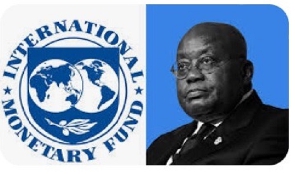Ghana is one of the African countries that has relied heavily on International Monetary Fund (IMF) loans to support its economic development. The country has gone through several IMF programmes over the past few decades, each with its own set of conditions and targets. The last IMF programme, which started in 2015 and ended in 2019, was aimed at stabilizing Ghana's economy and restoring macroeconomic balance. In this article, I will explore the implications of this IMF programme on public basic schools in Ghana.
Firstly, it is important to note that basic schools in Ghana refer to primary and Junior High Schools. These schools provide education to children between the ages of six and fifteen. The education sector in Ghana has been facing several challenges, including inadequate infrastructure, teacher shortages, and low-quality education. The IMF programme aimed to address some of these challenges by providing financial support to the government.
Under the IMF programme, Ghana was required to implement several economic and structural reforms. These reforms included reducing the budget deficit, improving tax collection, and reducing public debt. While these reforms were necessary to stabilize Ghana's economy, they had implications for basic schools in Ghana.
One of the major implications of the IMF programme was a reduction in government spending on education. In order to meet the IMF's targets, the government had to cut back on its expenditure on education. This meant that basic schools in Ghana received less funding from the government, which affected the quality of education provided.
Another implication of the IMF programme was the introduction of user fees in basic schools. User fees refer to fees charged by schools for various services, including tuition, textbooks, and uniforms. The IMF programme required Ghana to introduce user fees in basic schools to generate revenue and reduce the burden on the government. While the introduction of user fees helped to generate revenue, it also had a negative impact on access to education, especially for children from poor families.
The IMF programme also had implications for teacher salaries in basic schools. The programme required the government to freeze public sector wages, including those of teachers. This meant that teachers in basic schools did not receive any salary increases during the period of the IMF programme. This affected the morale of teachers and their motivation to provide quality education.
In conclusion, while the IMF programme was necessary to stabilize Ghana's economy, it had significant implications for basic schools in Ghana. The reduction in government spending on education, introduction of user fees, and freezing of teacher salaries had a negative impact on the quality of education provided and access to education. It is important for the government to address these challenges and invest in the education sector to ensure that every child in Ghana has access to quality education.
Opinions of Friday, 5 May 2023
Columnist: Amb. Henry OSABUTEY















